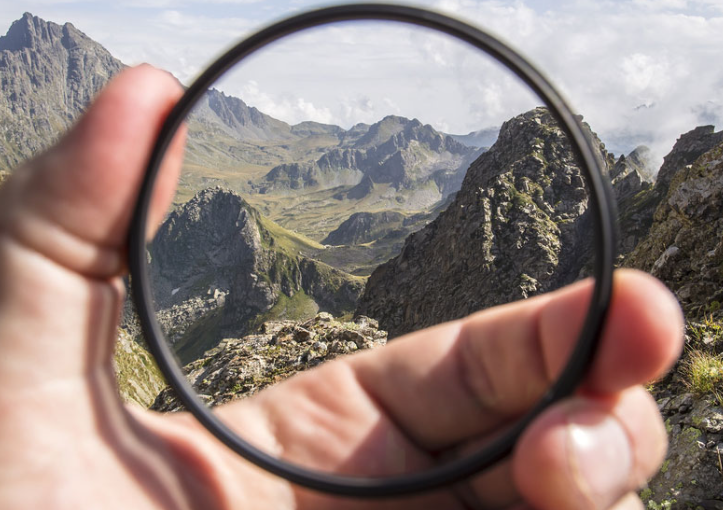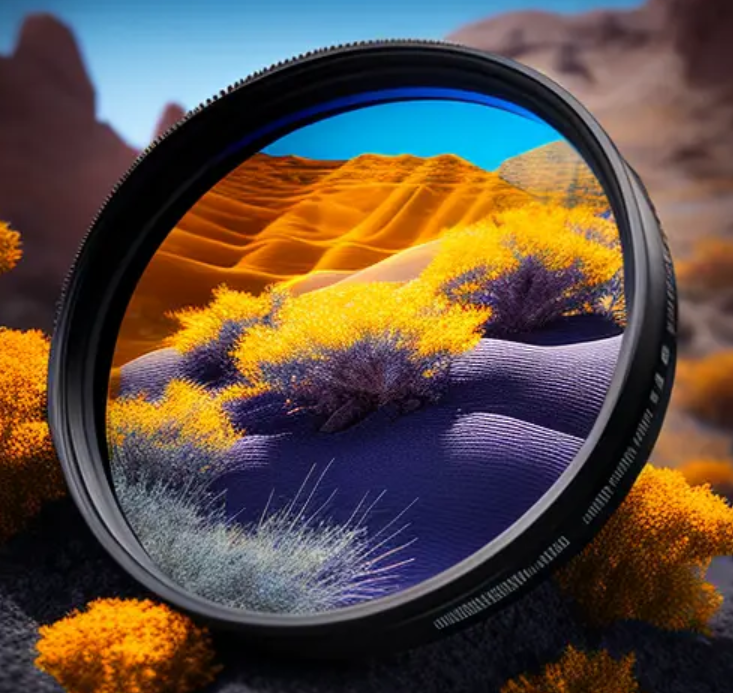Shield your lens from harmful UV rays and extreme heat with a high-temperature-resistant UV filter. When protecting your camera lens, a UV filter is a must-have accessory, and the added feature of high-temperature resistance ensures durability and performance even in challenging environments.
This specialized filter blocks harmful UV light to enhance image clarity and sharpness and withstands elevated temperatures without warping or compromising its functionality. In this article, we will delve into the benefits and features of these filters and guide you on finding the perfect high-temperature resistant UV filter for your photography needs.

What is a UV Filter?
A UV filter is an optical accessory designed to protect your camera lens from ultraviolet (UV) rays, which can cause unwanted haze and reduce image clarity. It is a transparent filter placed in front of the lens to block UV light and prevent potential damage to your lens and image quality.
Does Filter Uv High-Temperature Resistant?
Yes, a UV filter with high-temperature resistance is specifically designed to withstand elevated temperatures without warping or compromising its effectiveness. Made from advanced materials capable of enduring extreme heat, these filters become ideal for photography or videography in challenging environments.
What Do UV Filters Do?
UV filters serve multiple purposes to enhance your photography experience:
- UV Light Blocking: The primary function of a UV filter is to block and eliminate ultraviolet light, reducing haze and enhancing image clarity and sharpness.
- Lens Protection: By acting as a physical barrier, a UV filter shields your lens from dust, moisture, scratches, and accidental impacts, ensuring its longevity and preserving performance.
- Color Enhancement: UV filters can help improve color accuracy by minimizing the bluish cast often accompanying outdoor photography, resulting in more vibrant and natural-looking images.
- Filter Stacking: UV filters serve as a base for attaching other filters, such as polarizers or neutral density filters, enabling creative effects without compromising UV protection.
Types of UV Filters
- Clear UV Filters
These filters offer pure UV protection without additional coatings or color adjustments. They are ideal for general-purpose lens protection and UV light blocking.
- Multi-Coated UV Filters
These filters feature multiple layers of special coatings, such as anti-reflective, to reduce lens flare, ghosting, and reflections while providing excellent UV protection.
- High-Temperature Resistant UV Filters
These filters have a design that allows them to withstand extreme heat without experiencing distortion or damage, which makes them suitable for shooting in hot and challenging environments.

How to Clean Oil from a UV Filter?
Removing oil from a UV filter is a delicate process. Here are the steps to clean it effectively:
- Use a blower or soft brush to remove loose dust or particles from the filter’s surface.
- Apply a small amount of lens-cleaning solution to a microfiber cloth or lens-cleaning tissue.
- Gently wipe the filter’s surface in a circular motion, starting from the center and moving outward.
- If the oil persists, dampen a cotton swab with the cleaning solution and gently rub the affected area.
- Once the oil is removed, use a clean, dry microfiber cloth to remove residual moisture.
Where to Find UV Filters?
For the best selection of high-quality UV filters, look no further than optolongfilter.com. This reputable online retailer offers a wide range of UV filters with various features, including high-temperature resistance. OptolongFilter.com provides detailed product descriptions, customer reviews, and secure payment options, ensuring a seamless and satisfying shopping experience.
FAQs:
Do UV filters affect image quality?
No, manufacturers design UV filters to minimize any impact on image quality while providing protection against harmful UV rays. High-quality UV filters should not noticeably degrade image sharpness or introduce distortion if properly selected and maintained.
Can I leave a UV filter on my lens all the time?
You can leave a UV filter on your lens as a permanent protective measure. However, it is essential to use a high-quality filter to avoid any potential impact on image quality.
Can a UV filter replace lens caps?
While a UV filter offers protection to your lens, it is still advisable to use lens caps when the camera is not in use. Lens caps provide additional protection against dust, moisture, and accidental impacts that a UV filter alone may not provide.
Can I stack a UV filter with other filters?
Yes, UV filters can be stacked with other filters, such as polarizers or neutral density filters, to achieve various creative effects while benefiting from UV protection. However, when stacking multiple filters, be cautious of potential vignetting or image quality degradation.
Do all lenses require a UV filter?
UV filters are optional accessories and may not be necessary for all lenses. They are beneficial in situations where UV light is prevalent, such as high altitudes or coastal areas. Assess your shooting conditions and needs to determine if a UV filter is appropriate for your lens.
Final Thoughts
UV filters offer vital protection against UV rays and high temperatures while providing several benefits for photographers. By understanding their functions, types, proper cleaning methods, and where to find the best UV filters online, you can enhance your photography experience and ensure the longevity of your lenses. Visit OptolongFilter.com today and explore their extensive range of high-quality UV filters to elevate your photography to new heights.
